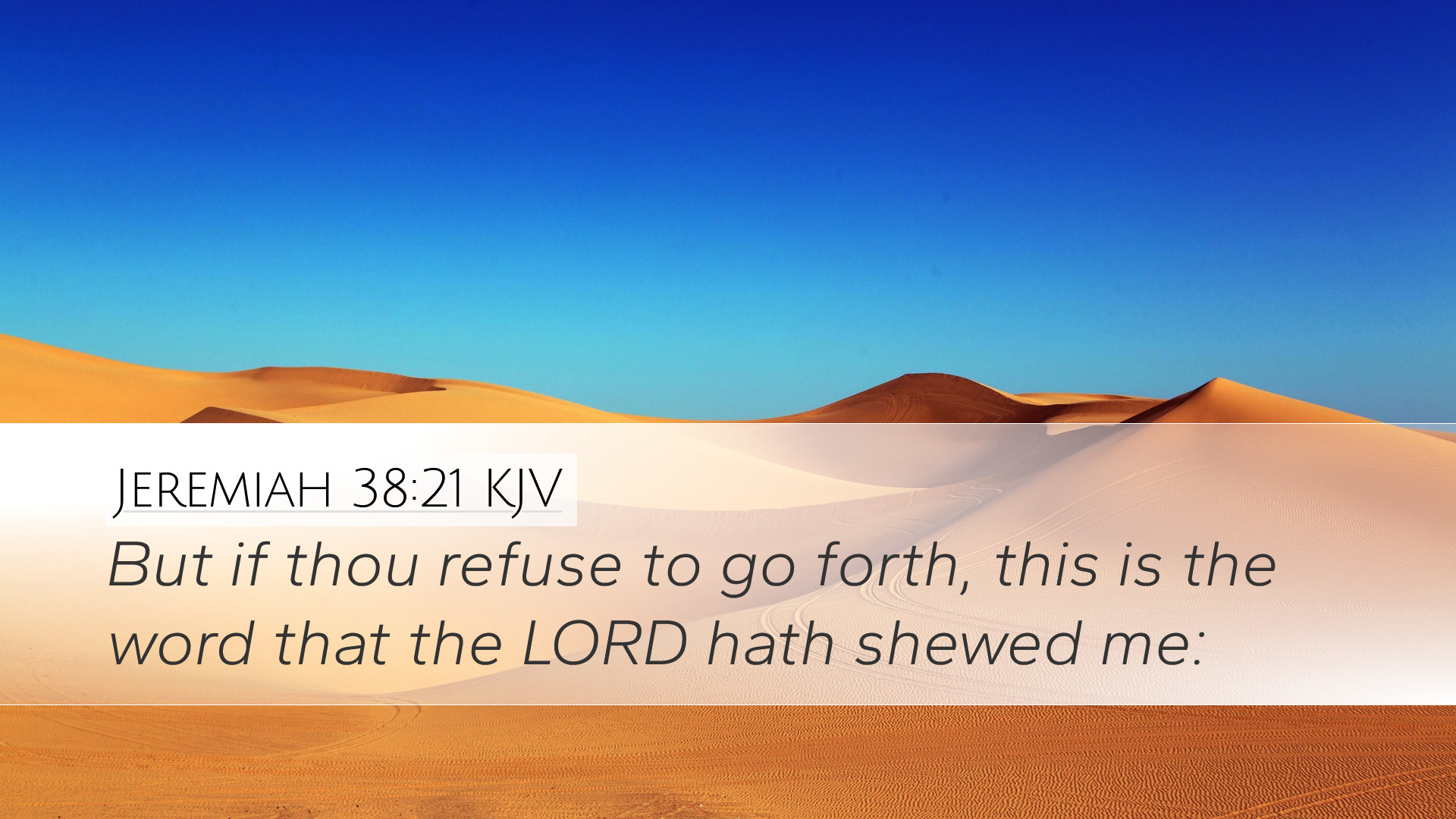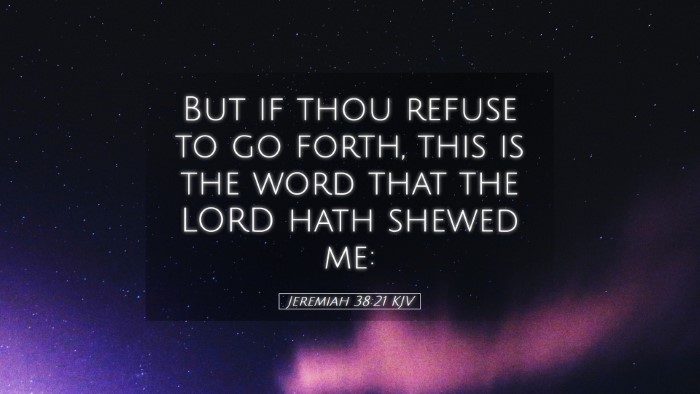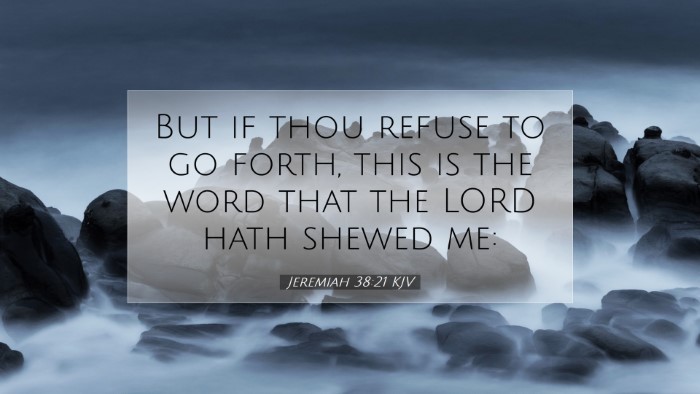Commentary on Jeremiah 38:21
Jeremiah 38:21 states:
"But if you refuse to surrender, this is the word that the LORD has shown me."
This verse is a pivotal moment in the book of Jeremiah, reflecting the intense struggle between God's prophet and the leadership of Judah during a time of impending judgment. The following commentary draws from various public domain sources, offering insights and interpretations that are meaningful for pastors, students, theologians, and Bible scholars.
Contextual Background
The context of Jeremiah 38 involves Jeremiah's imprisonment and the dire circumstances surrounding Jerusalem as it faces the Babylonian siege. This section of scripture illustrates not only the historical backdrop but also the spiritual decline of the nation, which had consistently turned away from God.
The Message of Surrender
In this verse, we find an essential imperative: the call to surrender. Jeremiah, as a prophet, communicates God’s command, emphasizing that the ultimate survival of the people lies in their compliance with God's will.
- Matthew Henry: He emphasizes that true safety and salvation come from yielding to God's plan, noting that surrendering to Babylon was, paradoxically, the pathway to life for the people of Judah. Henry explains that this surrender was not a reflection of weakness, but an act of faithfulness to God’s will.
- Albert Barnes: Barnes elucidates the consequences of refusal, stating that the Lord had outlined clear ramifications for disobedience. He highlights that Jeremiah's message served as both a warning and an opportunity for repentance, underscoring God’s desire for His people to turn back to Him.
- Adam Clarke: Clarke points out the prophetic aspect of Jeremiah's declaration, indicating its solemnity as God’s word directed at those resistant to change. Clarke also raises the importance of recognizing the sovereignty of God in the midst of chaos, a theme prevalent in the prophetic literature of the Old Testament.
Theological Implications
Jeremiah 38:21 opens a discussion on broader theological themes such as
- Divine Sovereignty: The sovereignty of God is a key theme throughout scripture, and in this passage, it is clear that God is still in control, even when circumstances seem dire.
- The Nature of Prophecy: The role of the prophet involves communicating the difficult truths that God imparts, often leading to confrontation with those in power.
- Human Free Will: The tension between divine sovereignty and human choice is highlighted through the imperative to surrender. The people have a choice, reflecting the theological belief that God honors human agency.
Application for Today
This verse speaks powerfully to contemporary readers regarding the concepts of obedience, humility, and recognition of God’s authority. For pastors and leaders, Jeremiah 38:21 can be a reminder about the importance of surrendering personal ambitions to God's will, especially in challenging times.
- For Pastors: They can draw lessons on the necessity of preaching the full counsel of God, even when it leads to difficult conversations within their congregations.
- For Theologians: The multifaceted nature of prophecy can be explored, particularly how the prophetic tradition informs our understanding of God's interaction with humanity.
- For Students: This verse can serve as a critical reflection point in understanding the nature of God’s communication through dire circumstances and the importance of responding faithfully.
Conclusion
Jeremiah 38:21 offers a striking illustration of the call to surrender and the consequences of resisting God's will. Through the insights provided by Matthew Henry, Albert Barnes, and Adam Clarke, we are reminded that surrender is not a mark of defeat but a profound act of faith in God. As we reflect upon this verse, let us consider our own lives in the light of God's command, seeking to yield our hearts and actions to His divine purposes.


